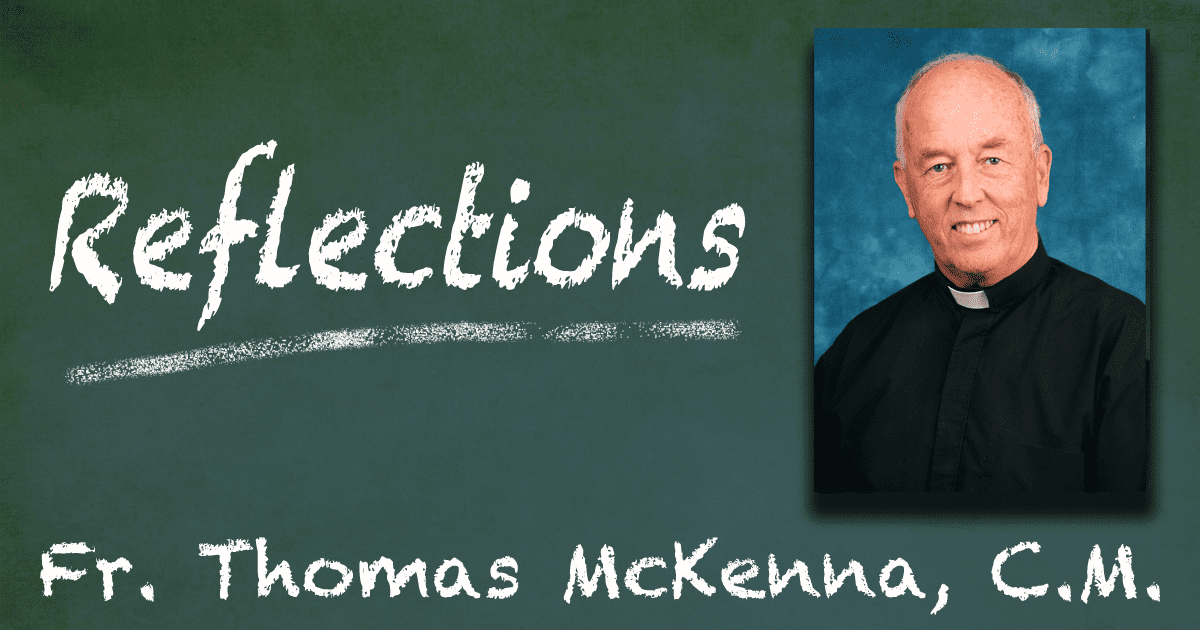A useful way to come to a fuller sense of what we believe is to put ourselves back into the times of the first Christians and try to imagine how they came to appreciate the tenets of our present-day Creed. Central to it is belief in the Trinity, the conviction of a three-ness in the one Godhead, the Divine as Father, Son and Holy Spirit.
In those early centuries, there was no elaborated Trinitarian doctrine. Our creedal distinctions and precisions, about how the Son proceeds from the Father and how the Holy Spirit is born of both, had not yet been thought out and formulated. Still, those early believers would give their lives in testimony to this this threefold nature in God. If their belief in the Trinity didn’t arise from a worked-out, technical theology, how did it emerge?
Writers tell us is that the convictions of these early Christians about the Trinity arose out of their religious experience, what they came to know of God in their hearts in minds through the varied ways God touched their everyday lives.
If you asked St. Paul how he “knew” God, he might say: “God is the creator, the one who began it all and continues it.” He’d further testify that the Creator God is not just a generic prime mover, but more marvelously has revealed his “face” (his characteristics, his human moves) in this person, Jesus of Nazareth.” But then thirdly, Paul might continue, “After Jesus died and rose and went to his Father, God did not leave us orphans. God has sent his Spirit, the heart and soul of his very own Self, to bewith us, near to us, up close to us – and indeed we have sensed and tasted that closeness.” As Paul famously put it in his letter to the Romans, “The love of God, seen in the person and on the face of Jesus, has been poured out into our hearts through the Holy Spirit who has been given to us.”Again, if this early cohort were asked how they encountered God, they might say, “We experience God’s Self in three ways: As creator-originator (Father); as revelation of who and what God is really like (Jesus); and as present-day nearness, the divine presence as it permeates our world and lives in the here and now (Spirit).”
Returning to this first-generation testimony helps us appreciate that underneath all the technical language, Trinity is first and foremost an experience, the intimate event of God showing up in our lives. The image is not so much a mathematical puzzle (how three emerges from one and then reverts back) as it is an encounter. Belief in the Threeness of the one God arises out of the lived faith of those who follow Jesus Christ, Son of the Father and in the Spirit. For them God is creator (beginner and sustainer); God has shown God’s intentions on the human face of this God-person Jesus; and God has drawn immeasurably near to us and our world in God’s very own Spirit — one God, experienced in three ways.
A word purposely left out here is “mystery,” (Mystery of the Trinity), because it has at least two meanings. The first as in “murder mystery” – throughout you don’t know who did it, but the last page discloses the total truth. The more profound sense of Mystery, however, is of something so vast and cavernous that no matter how deeply you go, there’s always more depth to plumb, more distance to travel. This is knowing something but never the whole of it. It is fathomless in that no matter how many fathoms down you go, you never bottom out. Trinity is just this kind of Mystery: the overflowing, never ending, all-encompassing expanse that we know as the love of God seen in Christ Jesus and poured into us and all round us through God’s own Spirit.
A final thought comes in a letter from Vincent, who though he could readily recite the orthodox formulas, reveals how “up close and personal” was his feel for God. “I pray that His Divine Goodness may accompany you, be your consolation along the way, your shade against the heat of the sun, your shelter in rain and cold, your soft bed in your weariness, your strength in your toil and finally, the He may bring you back in perfect health and filled with good works.” (I: 65)
The name within which we believe is Father, Son and Holy Spirit.








Thank you!